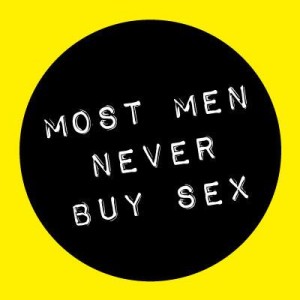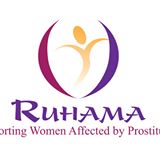
By Ann Marie Foley - 06 August, 2015
 Ruhama has publicly opposed Amnesty International’s proposal to decriminalise both the selling and buying of sex.
Ruhama has publicly opposed Amnesty International’s proposal to decriminalise both the selling and buying of sex.
Amnesty is hosting its International Council Meeting (ICM), (a decision-making forum) in Dublin this week (7-11 August 2015) and will consider the ‘Draft policy on sex work’.
“At present, Ruhama is extremely concerned about the content of this policy, and its implications for the global fight against sexual exploitation, should Amnesty choose to endorse it,” stated Ruhama.
“This policy frames prostitution as a legitimate form of work (i.e. ‘sex work’), and fails on many levels to recognise the violence, coercion, poverty and other vulnerabilities that draw so many vulnerable women and girls into the sex trade.”
Ruhama wants decriminalisation of those who sell sex, because vulnerable, exploited people in prostitution should never be criminalised.
However, Amnesty is proposing something far wider – the decriminalisation of the entire sex industry – its sellers but also pimps, brothel managers, sex trade ‘organisers’ and the sex buyers, many of whom very benefit and profit from those who sell sex.
“Many, including ourselves, are horrified that a world-renowned human rights organisation such as Amnesty would support an industry that thrives on the exploitation of so many. In seeking to support the free reign of the sex trade, Amnesty is arguably stamping on the human rights of some of the most vulnerable and exploited women and girls in the world,” stated Ruhama.
 Ruhama is the second Irish organisation to criticise Amnesty in recent times. One month ago the Pro-Life Campaign questioned Amnesty’s stance on abortion (see CatholicIreland.net 9July).
Ruhama is the second Irish organisation to criticise Amnesty in recent times. One month ago the Pro-Life Campaign questioned Amnesty’s stance on abortion (see CatholicIreland.net 9July).
Ruhama has called on the Irish public to sign a petition to “Vote no to Decriminalising Pimps, Brothel Owners, and Buyers of Sex” as around 500 Amnesty International delegates from more than 80 countries arrive in Dublin for the council meeting.
Ruhama has worked for several decades with prostitutes and is all too aware of what “consent” actually means in the sex trade which the majority of women enter it in the absence of real choices.
The online petition organised by the Coalition Against Trafficking in Women (CATW), stated that medical professionals, the testimonies of survivors and extensive research all demonstrate that the sex industry dehumanises and degrades, and the gender violence involved can cause life-long physical and psychological harm.
Signatories so far include more than 600 national and international women’s rights groups, leading survivors of the sex trade, human rights advocates, medical doctors, Hollywood actors and directors, fashion designers, faith leaders and concerned individuals from over 30 countries.
CATW states that the petition will send a signal to Amnesty International the importance of holding accountable those who prey on vulnerable individuals.

SPACE International (Survivors of Prostitution-Abuse Calling for Enlightenment) also issued a statement opposing Amnesty International’s resolution.
They say in the statement: “It is scarcely believable to us that you, Amnesty International, would be prepared to endorse a legal model that gives free reign to pimps and johns.”
“In doing so, you would be prepared to actively work against your own human rights principles and compromise your integrity as an organisation with a stated human rights mission, yet this is exactly the mystifying and incredible situation you have presented us with.”
SPACE points out that the proposed policy is in direct contravention to at least three UN conventions that address women’s rights: the UN convention of 1949; Article 6 of CEDAW which states that appropriate measures should suppress trafficking and prostitution of women; and Article 9.5 in the Palermo Protocol which discourage the exploitation which leads to trafficking
SPACE warned that Amnesty is “on the edge” of its next big mistake in relation to its global reputation on women’s rights by “debating whether or not to tell the world that we females exist to be used and that males have a right to use us.”
SPACE also objected to unacceptable phraseology such as the term ‘sex work’ (from the 1980s) and which was initially, deliberately constructed to conceal the harm and damage of prostitution.
“We would expect better from any human rights organisation than to buy into terminology that was created in order to conceal harm,” they state.